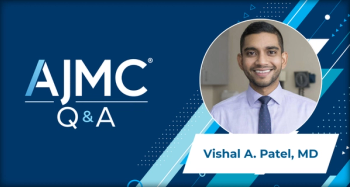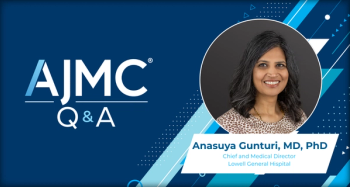
Enduring CE Webinar: Glucose Regulation in the Body: New Understandings for Management
Glucose Regulation in the Body: New Understandings for Management[Previously Recorded]
Grant Support
This activity is supported by an educational grant from Bristol-Myers Squibb and AstraZeneca LP.
FacultyCurtis L. Triplitt, PharmD, BCPS, CDE
Assistant Professor
Department of Medicine
Division of Diabetes
University of Texas Health Science Center
San Antonio Texas Diabetes Institute
San Antonio, Texas
Curtis Triplitt, PharmD, CDE, has disclosed the following commercial financial relationships:
Consultant/Advisory Board: Roche, Takeda Pharmaceuticals
Speaker’s Bureau: Amylin, Eli Lilly, Pfizer
American Journal of Managed Care
The planning staff from The and the Pharmacy Times Office of Continuing Professional Education have no relevant commercial financial relationships to disclose related to this activity.
Activity Overview
Pharmacists play an important role in the management of patients with diabetes. With access to data and methods for care coordination, they are critical to efforts to improve diabetes management. Pharmacists can help adopt ongoing, continual care of patients rather than episodic office visits, evaluate the role of newer agents in clinical practice, and advocate for treatment regimens that encourage adherence and persistence on the part of the patient in order to ensure optimal outcomes.
This educational program aims to increase the pharmacist’s understanding of diabetes pathophysiology, while providing a review of glucose regulation by the body by various organs and how they all affect disease progression. This webinar is the first of 2 webinars that will aim to provide full understanding of diabetes pathophysiology and a review of different treatment options that are available to address the various defects that lead to glucose imbalance.
This CE activity consists of a 50-minute presentation following by a Q&A session previously recorded during the live version of this program that was held on October 19, 2011.
Learning Objectives
After completion of this activity, participants should be better able to:
- Examine pathophysiology of diabetes and different mechanisms involved in maintaining glucose balance
- Explain new understandings in defects of glucose balance and their role in the pathophysiology of diabetes
- Review the role of different organ systems in maintaining glucose homeostasis
Target Audience: Pharmacists.
Type of Activity: Knowledge.
Fee: None.
Length of Webinar: 1 hour including question-and-answer session.
This CE lesson is contained in the following video/webinar:
The slides from the CE lesson are available for download:
How to Obtain Credit
To receive a CE certificate, participants must view the entire activity online, complete the online 10-question posttest with a score of 70% or better, and complete the evaluation form. After successful completion of the online posttest and evaluation form, participants may immediately print their certificates.
If you received CE credit for the live version of this program held on October 19, 2011, you cannot receive additional CE credit for this enduring version.
Pharmacy Credit
Pharmacy Times Office of Continuing Professional Education is accredited by the Accreditation Council for Pharmacy Education (ACPE) as a provider of continuing pharmacy education. This program is approved for 1 contact hour (0.1 CEU) under the ACPE universal program number 0290-9999-11-046-H01-P. The program is available for CE credit through October 19, 2013.
System Requirements
PC-based attendees
Required: Windows® 7, Vista, XP, 2003 Server or 2000
Macintosh®-based attendees
Required: Mac OS® X 10.4.11 (Tiger®) or newer
Professional Disclaimer:
The information in this presentation is intended for educational use and to stimulate professional discussion among colleagues. It should not be construed as legal advice. There is no way such a brief discussion of an issue or topic for educational or discussion purposes can adequately and fully address the multifaceted and often complex issues that arise in the course of professional practice. Moreover, statutes, regulations and court interpretations of the law can vary from jurisdiction to jurisdiction. It is always the best advice for a pharmacist to seek counsel from an attorney who can become thoroughly familiar with the intricacies of a specific situation and render advice in accordance with the full information.
Newsletter
Stay ahead of policy, cost, and value—subscribe to AJMC for expert insights at the intersection of clinical care and health economics.
















